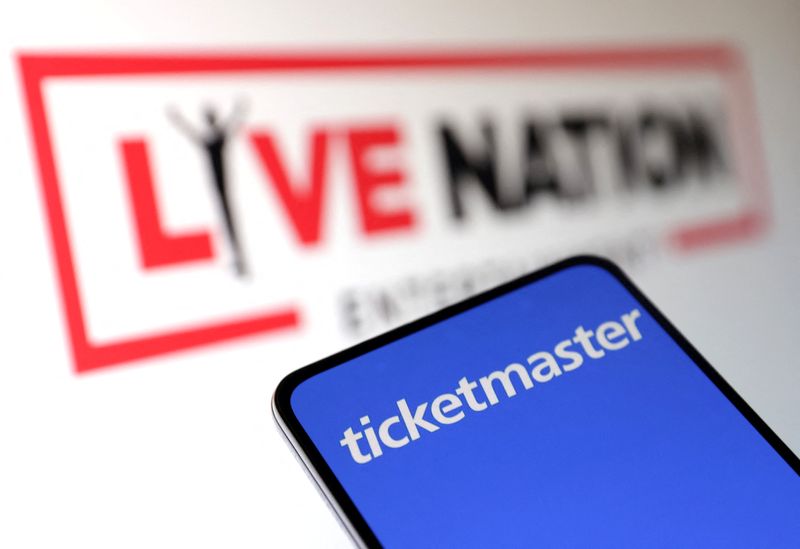By Jody Godoy
NEW YORK (Reuters) -Attorneys general from about two dozen U.S. states are seeking treble damages against Live Nation Entertainment (NYSE:LYV) and its ticket-selling unit, Ticketmaster, for allegedly monopolizing markets across the live concert industry in an updated version of a lawsuit originally filed in May.
The U.S. Justice Department and several states sued three months ago to break up Live Nation, arguing the concert promoter and Ticketmaster illegally inflated concert ticket prices and hurt artists.
Some states had sought damages under state law in the original lawsuit. By adding claims under the federal anti-monopoly law, states can seek three times the monetary damages.
On Monday, ten states joined the lawsuit filed in Manhattan federal court, and 26 states and the District of Columbia added claims for treble damages on behalf of their residents.
New York Attorney General Letitia James said in a statement that her office is seeking damages for what state residents were overcharged by Live Nation and Ticketmaster.
"It's time for a new era where fans, venues, and artists are not taken advantage of by big corporations that run the world of live events," she said.
Indiana, Iowa, Kansas, Louisiana, Mississippi, Nebraska, New Mexico, South Dakota, Utah and Vermont joined the lawsuit, boosting the total to 39 states and the District of Columbia.
The lawsuit says Live Nation directly manages more than 400 musical artists and controls around 60% of concert promotions at major venues. According to the complaint, Live Nation owns or controls more than 265 concert venues in North America, and through Ticketmaster controls roughly 80% or more of big venues’ primary ticketing for concerts.
A Live Nation spokesperson said the lawsuit "still won’t solve the issues fans care about relating to ticket prices, service fees, and access to in-demand shows."
"We look forward to sharing more facts as the case progresses," the spokesperson said.
The DOJ said in court papers that the "vast scope" of Live Nation and Ticketmaster allowed them to "insert themselves at the center and the edges of virtually every aspect of the live music ecosystem."
In 2010, the Justice Department approved Ticketmaster's controversial merger with Live Nation, with conditions intended to stop the combined company from harming competition.

In 2020, a court extended most of the DOJ's oversight of the merger to 2025 because, the department said, Ticketmaster retaliated against stadiums and arenas that opted to use other ticketing companies.
The Justice Department said that since its last case, Live Nation has engaged in more anticompetitive activity.